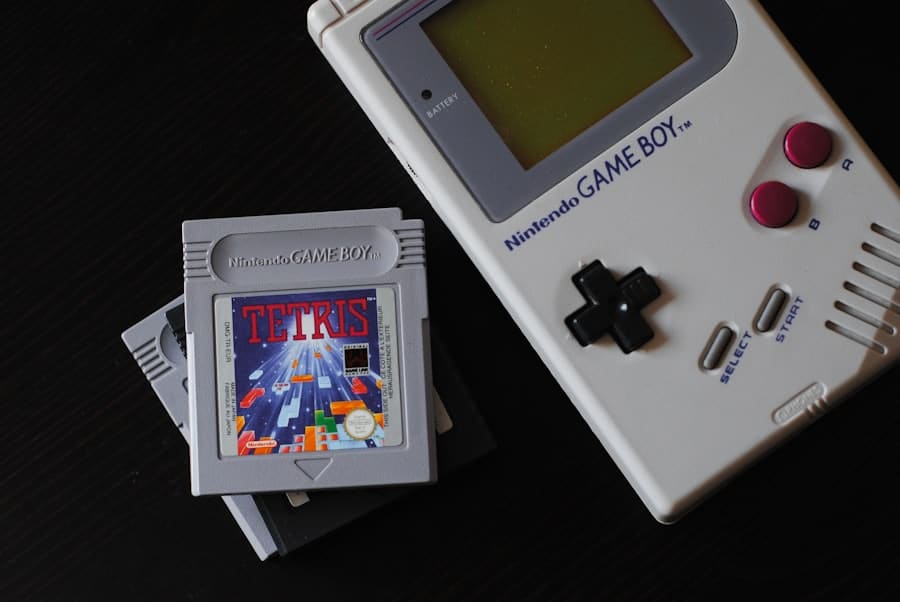Cross-platform gaming has emerged as a transformative force in the gaming industry, allowing players to engage with one another across different hardware and software ecosystems. This capability enables gamers on various platforms—be it consoles, PCs, or mobile devices—to interact seamlessly, fostering a more inclusive and expansive gaming community. The rise of cross-platform play has been driven by a growing demand for connectivity and social interaction among players, as well as the desire for a more unified gaming experience.
As technology continues to advance, the barriers that once separated gamers based on their chosen platforms are gradually dissolving, paving the way for a more integrated gaming landscape. The concept of cross-platform gaming is not merely a technical achievement; it represents a cultural shift within the gaming community. Traditionally, players were confined to their respective platforms, often leading to fragmented experiences and isolated communities.
However, with the advent of cross-platform capabilities, players can now team up or compete against friends regardless of the device they own. This evolution has not only enhanced the social aspect of gaming but has also encouraged developers to create more versatile and adaptable games that cater to a broader audience. As we delve deeper into the evolution of multi-device play, it becomes evident that cross-platform gaming is reshaping the very fabric of how games are developed, marketed, and enjoyed.
Key Takeaways
- Cross-platform gaming allows players to play games on different devices, such as consoles, PCs, and mobile phones, with seamless integration.
- Multi-device play has evolved from simple local multiplayer to sophisticated online cross-platform gaming, enabling players to connect and compete across various devices.
- Advantages of cross-platform gaming include increased player base, enhanced gaming experience, and the ability to play with friends on different devices. However, challenges such as hardware limitations and balancing gameplay across platforms also exist.
- Cloud gaming plays a crucial role in enabling cross-platform play by allowing players to stream games on various devices without the need for high-end hardware.
- The rollout of 5G technology is expected to revolutionize multi-device gaming by providing faster and more reliable connectivity, reducing latency, and enabling more immersive gaming experiences.
- The future of cross-platform gaming is likely to be shaped by virtual reality and augmented reality technologies, offering new ways for players to interact and experience games across different devices.
- Data security is a critical concern in multi-device play, as players’ personal and financial information needs to be protected across various platforms and devices.
- Cross-platform gaming has the potential to transform the gaming industry, offering new opportunities for players, developers, and publishers to create and enjoy games across different devices.
The Evolution of Multi-Device Play
The journey toward multi-device play began in earnest with the introduction of online gaming in the late 1990s and early 2000s. Early titles like “Quake” and “Counter-Strike” laid the groundwork for multiplayer experiences that transcended geographical boundaries. However, these games were often limited to specific platforms, creating a divide between console and PC gamers.
The advent of more sophisticated networking technologies and the rise of digital distribution platforms like Steam and Xbox Live marked significant milestones in this evolution. These platforms not only facilitated online play but also fostered communities where players could connect and collaborate. As technology progressed, so did the capabilities of game engines and development tools.
The introduction of cross-platform development frameworks such as Unity and Unreal Engine allowed developers to create games that could be easily ported across multiple platforms. This shift was pivotal in enabling cross-platform play, as it streamlined the development process and reduced the costs associated with creating separate versions of a game for different systems. Titles like “Fortnite” and “Rocket League” exemplify this trend, as they have successfully implemented cross-platform functionality, allowing players on PlayStation, Xbox, Nintendo Switch, and PC to compete against one another.
The success of these games has not only demonstrated the viability of cross-platform play but has also set a precedent for future titles.
Advantages and Challenges of Cross-Platform Gaming

The advantages of cross-platform gaming are manifold, significantly enhancing the player experience.
This inclusivity fosters a sense of community and camaraderie among players, as they can team up or compete against one another without being hindered by hardware limitations.
Additionally, cross-platform play can lead to larger player bases for games, which in turn can result in more vibrant online communities and longer-lasting game longevity. Developers can also benefit from this trend; by reaching a wider audience, they can increase sales and engagement metrics. However, cross-platform gaming is not without its challenges.
One significant hurdle is the disparity in performance capabilities between different platforms. For instance, a game running on a high-end PC may have superior graphics and frame rates compared to its console counterparts. This discrepancy can lead to imbalances in competitive play, where players on more powerful systems may have an advantage over those on less capable devices.
Furthermore, issues related to input methods arise; console players typically use controllers while PC gamers often rely on keyboards and mice. This difference can create an uneven playing field in fast-paced competitive environments. Developers must navigate these challenges carefully to ensure fair play while maintaining an enjoyable experience for all users.
The Role of Cloud Gaming in Cross-Platform Play
Cloud gaming has emerged as a pivotal technology in facilitating cross-platform play by allowing games to be streamed directly from remote servers rather than being run locally on a player’s device. This innovation eliminates many hardware limitations that have traditionally restricted cross-platform capabilities. With cloud gaming services like Google Stadia, NVIDIA GeForce Now, and Xbox Cloud Gaming (formerly known as Project xCloud), players can access high-quality gaming experiences on various devices without needing powerful hardware.
This democratization of access means that even those with lower-end devices can participate in cross-platform gaming. Moreover, cloud gaming enhances the potential for seamless transitions between devices. Players can start a game on their console at home and continue playing on their mobile device during their commute without losing progress or experiencing significant lag.
This flexibility is particularly appealing in today’s fast-paced world where players seek convenience alongside quality gameplay. However, cloud gaming is not without its drawbacks; it relies heavily on stable internet connections and can suffer from latency issues that affect gameplay quality. As internet infrastructure continues to improve globally, the role of cloud gaming in cross-platform play is likely to expand further, making it an integral part of the future gaming landscape.
The Impact of 5G on Multi-Device Gaming
The rollout of 5G technology is poised to revolutionize multi-device gaming by providing faster data transfer speeds and lower latency than ever before.
With 5G networks capable of supporting data rates exceeding 10 Gbps, players can expect near-instantaneous loading times and reduced lag when engaging in online multiplayer games or streaming content from cloud services.
The implications of 5G extend beyond mere speed; it also enables more complex interactions within games. For instance, augmented reality (AR) and virtual reality (VR) applications can benefit immensely from 5G’s capabilities, allowing for richer environments and more immersive experiences that require real-time data processing. As developers harness these advancements, we may see an increase in innovative gameplay mechanics that leverage the power of 5G networks.
Furthermore, as mobile devices become increasingly powerful and capable of handling demanding games, the line between traditional console or PC gaming and mobile gaming will continue to blur, further enhancing the appeal of cross-platform play.
The Future of Virtual Reality and Augmented Reality in Cross-Platform Gaming

The Immersive Power of VR
The immersive nature of VR allows players to engage with games in entirely new ways, providing a unique and captivating experience. Meanwhile, AR enhances real-world environments with digital elements that can be shared across devices, further blurring the lines between the physical and digital worlds.
Breaking Down Barriers with Social VR
One notable example of the potential of VR is “Rec Room,” a social VR platform that enables users to create and share experiences across various devices, including VR headsets, PCs, and mobile devices. This platform exemplifies how VR can foster social interaction while breaking down barriers between different hardware ecosystems.
A Seamless Gaming Experience
As AR technology continues to evolve, the potential for cross-platform play expands even further. Players can interact with shared digital spaces regardless of their device type, creating a more cohesive gaming experience that transcends traditional boundaries.
The Importance of Data Security in Multi-Device Play
As cross-platform gaming continues to grow in popularity, data security becomes an increasingly critical concern for both developers and players alike. With multiple devices accessing shared game servers and accounts, the risk of data breaches and unauthorized access rises significantly. Players often link their accounts across various platforms—such as linking their console accounts with PC or mobile versions—which can create vulnerabilities if proper security measures are not implemented.
Developers must prioritize robust security protocols to protect user data from potential threats. This includes implementing two-factor authentication (2FA), encryption methods for data transmission, and regular security audits to identify vulnerabilities within their systems. Additionally, educating players about safe online practices—such as recognizing phishing attempts or using strong passwords—can help mitigate risks associated with cross-platform play.
As the industry evolves, ensuring data security will be paramount in maintaining player trust and fostering a safe environment for all participants.
The Potential of Cross-Platform Gaming for the Future
Cross-platform gaming stands at the forefront of a new era in interactive entertainment, characterized by unprecedented connectivity and inclusivity among players across various devices. As technological advancements continue to reshape the landscape—through innovations like cloud gaming, 5G connectivity, and immersive VR/AR experiences—the potential for cross-platform play will only expand further. The challenges that accompany this evolution will require ongoing collaboration between developers, platform holders, and players to ensure fair play and security.
The future promises exciting possibilities for cross-platform gaming as it continues to break down barriers between different hardware ecosystems. By fostering a more unified gaming community where players can connect regardless of their chosen platform, we are witnessing a cultural shift that emphasizes collaboration over competition. As we look ahead, it is clear that cross-platform gaming will play a pivotal role in shaping the future of interactive entertainment, creating experiences that are richer, more engaging, and accessible to all.
If you are interested in exploring the future of technology and gaming, you may also want to check out this article on the best software to clone HDD to SSD here. This software can help improve the performance of your devices and enhance your gaming experience. It is just one example of how technology is constantly evolving to meet the needs of users in a variety of industries.
FAQs
What is cross-platform gaming?
Cross-platform gaming refers to the ability for players using different gaming platforms, such as PC, console, and mobile, to play together in the same game environment.
What is seamless multi-device play?
Seamless multi-device play allows players to start a game on one device and continue playing on another device without interruption, maintaining the same progress and experience.
What are the benefits of cross-platform gaming and seamless multi-device play?
The benefits include a larger player base, improved matchmaking, enhanced social connectivity, and the ability to play games on different devices without losing progress.
What are the challenges of implementing cross-platform gaming and seamless multi-device play?
Challenges include technical compatibility issues, different control schemes across devices, and ensuring fair gameplay for all players regardless of their chosen platform.
What technologies are driving the future of cross-platform gaming and seamless multi-device play?
Technologies such as cloud gaming, cross-platform game engines, and unified account systems are driving the future of cross-platform gaming and seamless multi-device play.
What impact will cross-platform gaming and seamless multi-device play have on the gaming industry?
These advancements are expected to break down barriers between different gaming platforms, create new opportunities for game developers, and provide a more inclusive and flexible gaming experience for players.

